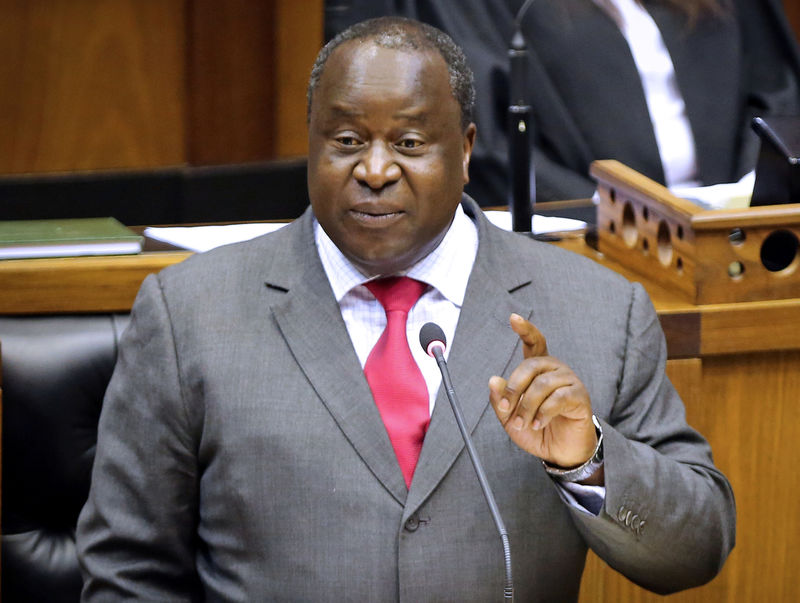By Vuyani Ndaba
JOHANNESBURG (Reuters) - South Africa's Treasury head Tito Mboweni is likely to appease rating agencies and squeeze a tenth of a percentage point off his previous budget deficit forecast for next financial year, a Reuters poll showed on Thursday.
The poll taken in the past week suggests Mboweni will announce a deficit target of 4.1 percent of gross domestic product - narrower than the 4.2 percent he predicted in October and just 0.1 percentage point wider than government and poll estimates for the year ending next month.
South African budget deficits as a percentage of GDP have confounded economists in the past two years with revenue shortfalls, while economic growth has consistently undershot forecasts in the past decade.
"They will have to try and trim on the expenditure side. So I think they will try to reflect something better than what we saw in the (October) medium term budget statement," said Dennis Dykes, head of economics at Nedbank.
Thereafter, the deficit is expected to narrow to 4.0 percent of GDP for the year from April 2020 and further to 3.7 percent the following year.
"It is very growth-dependent, that is the first variable in the whole equation. That affects the denominator as well as the revenue line in a very big way. The potential improvement will come with GDP; hopefully it starts to pick up in the medium term so that alleviates some of the pressure," said Dykes.
The economy is expected to grow 1.5 percent this year, faster than the 0.7 percent predicted for last year, and expand 1.9 percent in 2020.
But Reuters poll forecasts collected in the past 20 years have painted two stories, one rosy and one gloomy, separated by the 2008/09 global economic recession, from which South Africa's growth performance has recovered well.
South Africa remains under pressure from slow economic growth, with deteriorating growth levels in recent years contributing to revenue shortfalls and a deterioration in the financial position of state-owned companies, PWC said in a note to clients.
For most years in the past decade, growth forecasts collected in Reuters polls ahead of the February budget had to be trimmed substantially in the lead up to October's medium-term budget review (MTBPS).
That is in stark contrast to the period from 2001 up until the global recession, when for most years growth came in above economists' projections, making it easier for policymakers to raise revenues.
PWC expects South Africa's tax revenues to grow in line with GDP growth to approximately 1.408 trillion rand ($101.5 billion), some 22 billion rand below the MTBPS forecast.
Razia Khan, head of Standard Chartered (LON:STAN) Africa research said rating agencies will want to see higher growth and a meaningful improvement in SOE finances before changing South Africa's rating outlook.
Moody's - due to hold a review next month - is the only major agency still holding South Africa's debt at investment grade. A downgrade of the debt denominated in rand from Moody's would trigger forced capital outflows, weakening the rand.

S.African GDP growth forecasts vs actual performance and main budget balance: https://tmsnrt.rs/2BB8bwu